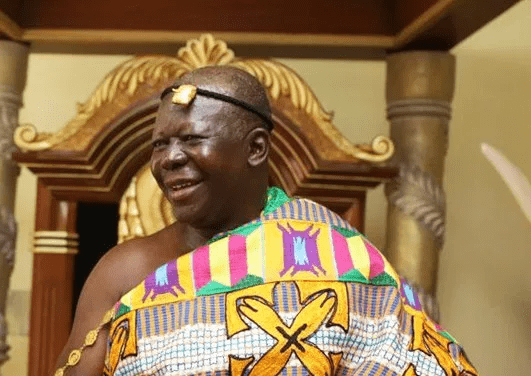
Asantehene to plant 2.5 million trees around Lake Bosomtwe
The Asantehene, Otumfuo Osei Tutu II, has declared his commitment to plant and manage 2.5 million trees around Lake Bosomtwe.
The project, which will span five years, is in line with the Asantehene’s move to provide protection for water bodies in Asanteman.
A statement from the Manhyia Palace said Otumfuo Osei Tutu made this known during the celebration of Akwasidae at the Manhyia Palace last Sunday.
The landscape restoration intervention project will cover around 4,000 hectares.
Otumfuo expressed the hope that the project would ultimately help contribute to improve the ecosystem, service provision, climate change mitigation, and improved environmental consciousness among inhabitants of fringe communities around the Lake.
“The project is envisioned to contribute to Ghana’s environmental protection efforts, contribute to the fight against climate change, contribute to Ghana’s pledge to the Bonn Challenge as well as improve tourism around Lake Bosomtwe,” the Asantehene said.
UNESCO designation
In response to an appeal made by Otumfuo Osei Tutu for the protection of Ghana’s only natural lake, Lake Bosomtwe, the United Nations Educational, Scientific and Cultural Organisation (UNESCO), in 2016, designated the lake as a Biosphere Reserve Site to promote a healthy balance between biodiversity conservation and its sustainable use.
A tripartite agreement has been signed among UNESCO, the Ministry of Water Resources, Works and Housing, and the Asantehene, who is the custodian of the lake.
Partners
The 2.5 million trees project around Lake Bosomtwe is a partnership between the Oheneba Poku Foundation, an NGO, and the Manhyia Palace.
Other stakeholders include the Forestry Commission, the Environmental Protection Agency (EPA), the Water Resources Commission, the Ghana Tourism Authority, UNESCO, the District Assemblies of Bosome-Freho and Bosumtwe, and the Lake Bosomtwe Community Resources Management Areas (CREMA), an NGO.
Multiple schemes
The project will adopt multiple schemes for tree planting, particularly a mixture of agro-forestry and pure plantation approaches will be adopted.
In the case of agro-forestry, the project will liaise with individual farmers to integrate trees on their farmlands and manage them.
For fallow lands, planting will either be through enrichment planting or through full reforestation.
Tree planting will also be done on school compounds where possible.
In general terms, indigenous tree species will be planted in the area to at least restore the cultural heritage.
As much as possible, mixed stands will be adopted to improve the biodiversity of the restored area, which would help return the areas to well-functioning ecosystems where services will be obtained to support the daily subsistence of inhabitants such as collection of snails, mushrooms and other important non-timber forest products derived from forests.
Amakomhene chairs
Otumfuo Osei Tutu has asked the Amakomhene, Nana Adu Mensah Asare, to chair the Implementation Committee to ensure a seamless and successful implementation of the project.
The Executive Director of the Oheneba Poku Foundation, Mr Fred Kyei Sapong, disclosed that awareness would be created in all communities around Lake Bosomtwe of the importance of tree planting, environmental protection and conservation and climate change causes and their effects and solutions.
He said partnering Otumfuo in planting 2.5 million trees might “seem a symbolic gesture of climate justice but it will also help reverse the reduction of the water level of the lake and protect the water body for the next 200 years.”
